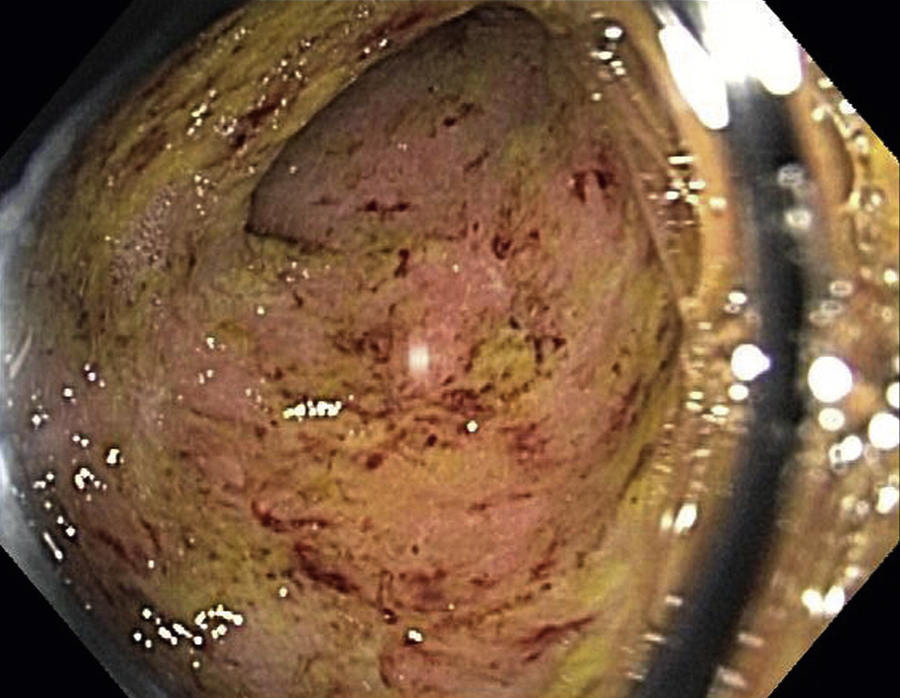pseudomembranous colitis /-mem″brənəs/ [Gk, pseudes + L, membrana, thin skin] , a diarrheal disease frequently found in hospitalized patients who have received antibiotics that caused overgrowth of the anaerobic spore-forming toxin Clostridium difficile. Patients have profuse watery diarrhea, fever, and cramping and are found to have exudates of the colon on endoscopy. Diagnosis is made by identifying the offending toxin in the stool of the affected patient. Antidiarrheals are strictly contraindicated because a life-threatening dilation of the bowel called toxic megacolon may result. The bacterium is passed from patient to patient by health care workers who fail to wash their hands adequately. Strict isolation of infected stools is necessary to prevent outbreaks of epidemics. Treatment with oral vancomycin or parenteral metronidazole usually will result in abatement of symptoms within 3 to 5 days. In mild to moderate cases, supportive therapy alone is required.

